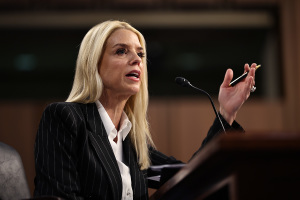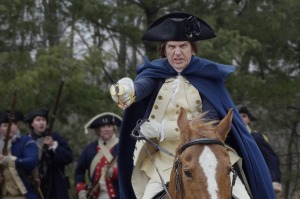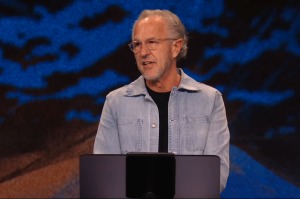Promise Keepers almost convinced Bill Clinton to apologize for slavery, says AR Bernard
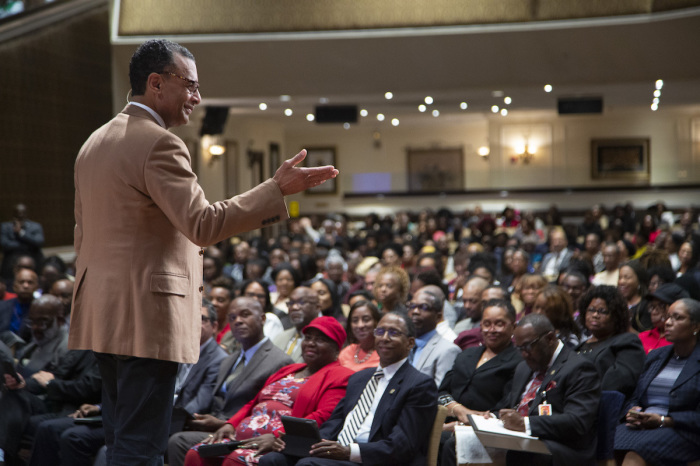
In a presidential radio address on Oct. 4, 1997, then-President Bill Clinton praised Christian men’s ministry Promise Keepers for helping men lead their families responsibly.
“Today thousands of members of a Christian men's organization, Promise Keepers, are meeting on the Mall in Washington. Again, there are those who have political differences with some of the statements which have been made by some leaders of the organization. But, again, no one can question the sincerity of the hundreds of thousands of men who have filled football stadiums across our country, and who are willing to re-assume their responsibilities to their families and to their children, and therefore to our future,” Clinton said in his address at the time. “Their presence here is yet another example of the nation's understanding and attention to the need to strengthen our families. There is nothing more important.”
Not so well-known, according to one of the organization’s board members and leader of New York City's 40,000-member Christian Cultural Center, the Rev. A.R. Bernard, is that the group also tried pushing Clinton to do something that has yet to be done by any president or Congress in history — apologize for slavery.
“In the 1990s there was this spirit of reconciliation, repentance, confession, redemption that Promise Keepers reflected in the global culture. We had during that time the Prime Minister of Australia apologizing to the Aboriginals for its historical treatment of the Aboriginals. We had the Prime Minister of the U.K. apologizing to the Irish for that fiasco. And we had Bill Clinton ready to apologize for slavery in America,” Bernard said in an interview with The Christian Post on Tuesday. Clinton’s advisors, however, “wouldn’t let him.”
“We almost got there but we didn’t quite make it,” the New York City pastor recalled with a chuckle.
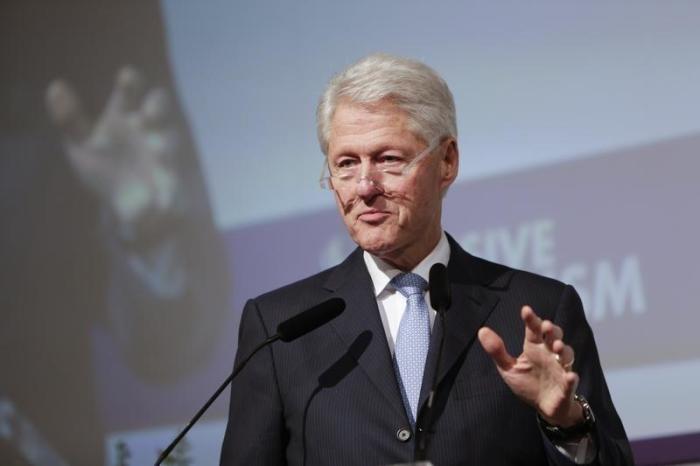
After Clinton’s address that October, more than 1 million Christian men who committed to seven promises encompassing a commitment to family, faith, integrity and racial reconciliation, would gather at the National Mall in Washington, D.C., with Promise Keepers.
The men from the ministry founded in 1990 by Coach Bill McCartney, “hugged, sang and sank to their knees …, repenting for their own sins and what they see as a secular and socially troubled America,” noted The New York Times.
Samuel H. Jordan, then-director of the District of Columbia Office of Emergency Preparedness, said the event appeared to rank among some of the largest events ever held on the National Mall, including the civil rights marches and anti-Vietnam War protests of the 1960s, as well as the Million Man March in 1995.
While Clinton did not offer an apology for slavery, Mark Medish and Daniel Lucich, lawyers and political consultants who served in the Clinton administration, suggested in an op-ed published by NBC News in 2019 that had Clinton followed the advice of Promise Keepers it would have been the right thing to do. They argued that Congress should apologize for slavery because it is a prerequisite for any meaningful discussion of reparations for slavery which remains ongoing today.
“The idea of an apology, much less reparations, has gone up and down over the last 20 years, but is certainly on a downward trend today. Lack of public support is not surprising, because it reminds us of an ugly truth about U.S. history. But unpopularity should not deter us from a just course,” they argued. “A national apology would not be the last word on righting the historical wrong — leaving open the reparations question — but it would be an essential act of contrition and a vital rededication to our American values,” they said.
In April, a House committee voted to recommend for the first time the creation of a commission to consider providing black Americans with reparations for slavery and a “national apology” for centuries of discrimination through a bill called H.R. 40, The New York Times reported.
The late Democratic Rep. John Conyers of Michigan, first proposed the bill to study reparations for black Americans in 1989 and every legislative session after that. The bill never reached the House floor for a vote to put it on a path to become law.
His Democratic colleague, Rep. Sheila Jackson Lee of Texas, continued his fight when she raised the issue of reparations in January 2019 by introducing bill H.R. 40, also known as the "Commission to Study and Develop Reparations Proposals for African Americans Act."
Since their heyday in the 1990s, Promise Keepers doesn’t appear to have been as vocal in the culture. But under the new leadership of Ken Harrison, the group is now praying for massive revival and transformation in America by 2025, and plan on pushing that agenda at their conference at AT&T Stadium in Arlington, Texas, from July 16-17, which is still registering participants to fill the 80,000 seats.
Bernard, who is one of several featured speakers for the event this year, says one of the things he is looking forward to at the gathering is the “shared identity with Christ.”
“That’s where it begins in spite of all the other stuff if we can indeed gather in a shared identity in Christ regardless of class, education, economics, race, ethnicity — we can come together under the banner of our shared relationship with Jesus Christ. And we can worship together and we can be spoken to by selected and trusted voices,” he said.
Bernard is also looking forward to the ministry using that shared identity in Christ to mobilize Christian men to boldly “reassert a biblical model of manhood” and build on the progress of the ministry in areas such as racial reconciliation that was made in the 1990s by using their influence to effect change.
Joining Promise Keepers
When McCartney approached Bernard about joining Promise Keepers in the early 1990s, his aim was to build bridges across the racial divide.
“He came to New York and met with several black pastors and Latino pastors with regard to Promise Keepers taking on the issue of racial reconciliation,” Bernard recalled.
“He actually came to my church. We had a gathering of leaders there and we listened to him. And he expressed that this is something that he is passionate about along with men’s ministry. And we began to develop a relationship. He knew through my relationship with Edwin Louis Cole that I was part of the Christian Men’s Network and Dr. Cole and I traveled extensively speaking to men. So he invited me to be a part of it and then took the next step and asked me if I would speak on the issue of racial reconciliation. Of course my response was ‘Are you sure you want me to speak?’” he said with a chuckle.
“He said I heard that you will be frank, honest, transparent, yet you’ll be wise and redemptive,” he said, explaining how the relationship with Promise Keepers started.
“I was invited to speak on several occasions. The most memorable for me was at RFK stadium. No, no. I would say two memorable. At RFK stadium we spoke to 55,000 men that were gathered there and an incredible altar call, tens of thousands of men came forward and we had white guys repenting of the sin of racism and also called upon men of color to repent of bitterness against whites for the condition historically in America,” he said.
“The next opportunity was for me significant and that [was] the gathering in Washington, D.C., of some 1 million-plus men. So that is the genesis of the relationship. I continue to interact with them.”
In keeping with his spirit of honesty and openness, Bernard explained that building the bridge with Promise Keepers took work.
“Everyone wasn’t as happy as Coach was for my involvement,” he said. “Some of his advisors and board members were very nervous with me and uncomfortable, but Coach insisted and we developed with him a warm relationship and some of the other guys … some were nervous.”
Bernard explained that “male identity in America is in crisis” and more than ever now “we need to clarify what manhood really is” because the challenge to the conservative view of manhood in society has become bolder.
“I’m essentially a conservative and my view of family is the traditional model of husband and wife. Liberals on the other side have an adaptive family model that allows single parents, but more so for the sexual identities that are now being randomly claimed by how people feel about themselves as opposed to a biological identity,” he said.
“So there is that tension and Promise Keepers stands for that traditional model which is OK. And I think it’s important for us to have an opinion. To have a worldview, to have a perspective that we want to live out and not have to demonize it just because you disagree with it,” he continued.
“We’re also in an age where organizations or groups who believe in that traditional model —that the man should be the backbone of the family. That family, father’s house, which is the biblical model, rests on male leadership. That’s a model that we subscribe to in terms of the responsibility, but I don’t believe in the hyper-masculinity that we’re accused of.”
Bernard explained, however, that he isn’t worried about the culture wars because he sees it as an opportunity for Christians to truly clarify who they are in the culture.
“The culture wars go back throughout American history. It’s become more in your face because of social media, because of all of these platforms that individuals now have to express their opinions and ideas. The culture wars we’ve been fighting for a long time. Whether it’s to change that traditional model [of manhood] or to preserve that traditional model. I like the fact that we have opposing views. Different ideas, different worldviews. I like that. It enhances my old worldview. It strengthens my worldview when I have these opposing forces and opposing ideas because it forces me to clarify who I am and what I believe, and I think that’s the positive effect of the culture wars on the church, at least it should be. It should not leave us in confusion.”
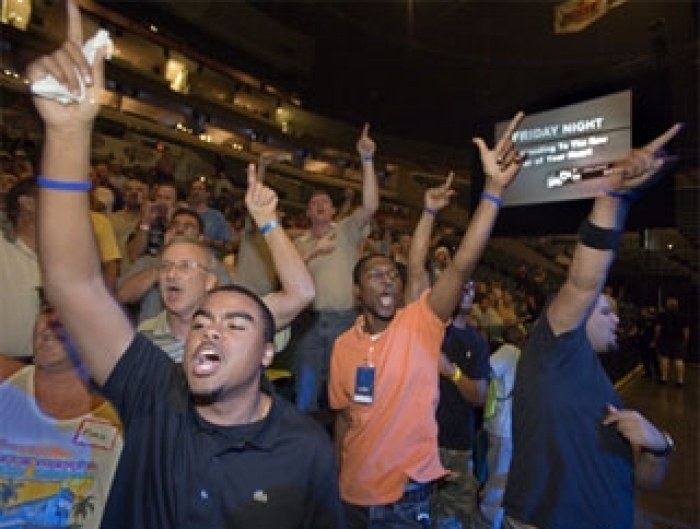
Asked if he was concerned that the Church might not be able to regain the influence on men it once had based on data from the 2020 American Family Survey that shows only 36% of parents believe churches are serving their sons well, Bernard said he welcomes the questioning on institutions when they don’t live up to their promise.
“You are talking to a child of the '60s. A Baby Boomer. I lived in the decade of the 1960s where every revolution imaginable was taking place. And as a product of that, I was anti-establishment. My generation was anti-establishment. We challenged the establishments. So the millennials are not doing something new. They are doing exactly what we did. It’s cyclical. It skipped Generation X and now Generation Y, the millennial generation, is now doing the very same thing.
"I think it’s important that the establishment and its institutions are challenged to see whether they are living up to their promises. And it forces adjustments to these institutions. So this is not foreign, this is not alien. I saw this, I lived through it. I’m enjoying it,” he said. “I think it needs to be taken to task, the Church as a moral institution. And the fact that the Church must be understood as more than just a religious institution, but as a social-cultural institution.”
He was quick to note, however, that the questioning of institutions should be done with wisdom.
“I think that rather than rejection completely the wisdom, history and experience of the establishment institutions, this generation should appreciate the fact that they could not enjoy the freedoms that they have without what has been accomplished so far,” he said.
Critical race theory
When asked how a diverse ministry can meaningfully address the needs of the various backgrounds men come with to conferences like Promise Keepers, he said by “choosing speakers who are going to speak into these issues and not be afraid and yet carry the DNA of Promise Keepers’ vision and mission.”
He recalled how two weeks ago he joined Pastor Nona Jones of Open Door Ministries and Bernice King, the youngest child of civil rights icon Martin Luther King Jr., and CEO of The King Center, in giving a speech on race in Knoxville, Tennessee.
“We had great participation, overwhelming response. But at the same time, there were those who were afraid of the conversation. We had Black Lives Matter in the audience, we had whites, blacks and Latinos in the audience.
“They saw that we could have a civil conversation and tackle the hard issues. We can talk about the fact that every significant social [ill] can be traced to fault lines in human institutions. If we think of critical race theory not as it has been hijacked but as it states — a theory that takes a critical look at the historical role of race and racism in [customs and institutions], then we disarm the fear that comes from the extremes that have hijacked this thing. And unfortunately, people are hijacking terms and language and using fear tactics to push their social and political agendas.
“My passion is to bring clarity. To be a clear voice in the midst of all this confusion and robbery. We’ve learned that whoever controls the language controls the conversation and guides the narrative. So people are hijacking language. So you take something like critical race theory and it becomes a catch-all for any examination of racism and there are those who are in denial,” he said.
“And yet, when we look back at the history, can we deny slavery? Jim Crow? Segregation? The G.I. Bill? FHA? Redlining?” he asked.
“These are real things. The United States is an incredible experiment which allows us to hold it accountable to the ideals expressed in its founding documents. I think that’s fantastic and we have a responsibility to do that. Because those documents declare what we believe in our biblical worldview that humanity is flawed and we have to build systems to address those flaws and the fact that because flawed human beings are creating these systems and structures, it’s going to reflect those flaws.”
How can churches respond to their male challenge?
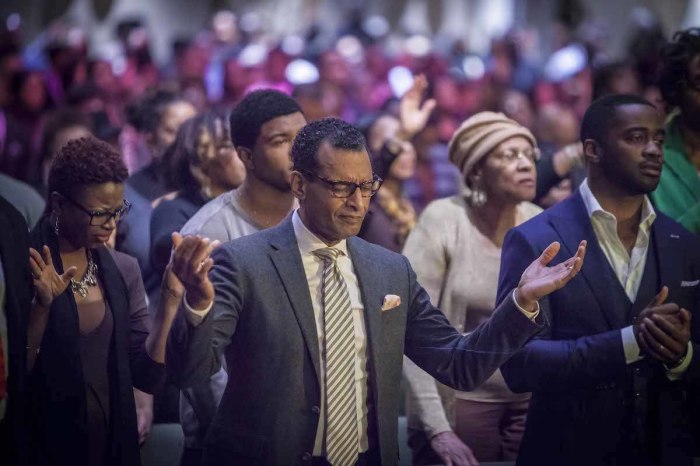
Bernard argues that churches can do better outreach to men by “reasserting a biblical model of manhood” which is working for Promise Keepers.
“I think that what Promise Keepers is doing and what the Church should do is reassert a biblical model of manhood. I say that carefully because even in the Church there’s a dozen different models. I think that we have to understand that when we treat the man as foundational to the family and the family as foundational to society, we will try to empower that man; shape his thinking about himself and about his relationship with his family and with the culture at large,” he said.
“Look, the feminist movement put men in confusion. We didn’t know whether we were too hard, too soft and culture tends to respond not by a thoughtful median but the extremes. So it’s always an extreme reaction one way or the other. I think it’s time that we deal with this confusion and restore men to an identity that is biblical and not extreme. That is balance, not extreme. I think this is a great opportunity for the Church,” he said.
















